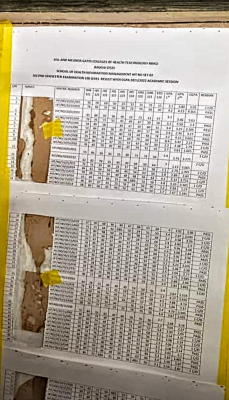Studying abroad doesn’t have to break the bank. There is a lot of information out there online, on campus, and in the form of firsthand experience from friends and other students who’ve recently returned from studying abroad. Before you decide NOT to go due to cost, do your research.
Below are the 6 Tips to Make Studying Abroad program More Affordable
1. Determine if you can apply your financial aid to study abroad.
Any financial aid that you already receive from your university should be transferable to a study abroad experience run by or affiliated with that university, because the tuition that you will be paying to study abroad is probably that of your home university. Some institutions will also allow students to use their university aid for nonaffiliated programs. Moreover, the amount of aid may vary depending on the type of program you choose. So don’t assume that whatever aid you are currently receiving from your school will transfer over; you need to check with the financial aid office. Federal financial aid can be applied to any program as long as credit is earned and your home college accepts the transferred credits.
2. Apply for Study Abroad Scholarships.
Most colleges have a straightforward framework for applying for study abroad scholarships, one that lays out the potential amounts available, the process and deadlines for applying, and any restrictions that may exist. General scholarships for study abroad assistance, as well as targeted scholarships for diversity, first-generation (if you are the first in your family to attend college), and financially needy students are usually offered. Students must apply for scholarships and some can be very competitive. Be sure to look beyond your college scholarships, and ask your on-campus mentor or study abroad adviser for further advice and ideas:
College-based study abroad scholarships, including merit-based, student-specific, destination-specific, program-specific and subject-specific.
U.S. Government-sponsored scholarships and fellowships, including Benjamin A. Gilman, numerousFulbright awards, Critical Language Scholarship and Boren Awards.
Private organizations, such as AIFS Foundation and Rotary Foundation.
Foreign governments or organization, such as German Academic Exchange Service and the Chinese Government Scholarship Program.
3. Pursue destinations off the beaten track.
The best way to get a handle on the cost of living in your temporary home overseas is to compare the cost of living between the two countries, taking into account the fact that individual cities or regions can be above or below the national level. Study abroad program advisers should be able to provide you with the exchange rates and cost of living statistics for your host country, including those for food, housing and local transportation. Individuals who have studied abroad in the same location or on the same program recently should also be a good source of practical, on-the-ground information. Certain locations such as Spain, England and Italy are inherently going to be more expensive than others such as Ecuador, Peru or Senegal. It all has to do with the host country’s overall standard of living, especially as reflected in the postsecondary education system, and the overall price of basic commodities and services.
4. Opt for a short course.
Many universities have been encouraging students to go on short experiences abroad, coupled with on-campus coursework before departure and after their return. Because these programs involve only a limited time overseas – two to four weeks – they usually have the advantage of being considerably less expensive. However, many of these short courses do not have the same number of scholarships available.
5. Look for Ways to Save Money on the Ground.
Two of the biggest expenses are housing and food. Participating in a home stay is considered the cheapest option and includes meals and laundry, and offers the best immersion. You can also save money by preparing your own meals, if possible, and eating at local restaurants. You should also manage your money wisely, an important lesson to learn as a student that you can carry through life as a traveler.
6. Work or intern abroad – but do so legally
Internships abroad are a growing area in education abroad, and they are not only in the purview of study abroad offices. You can also seek guidance from your academic department or career services department which often work with the private sector to arrange internships for their students. More often than ever before, universities are reaching out to their alumni to develop internship opportunities for their students. Plus you might be able to find some sort of work when you arrive, but make sure you investigate and follow local labor laws.




